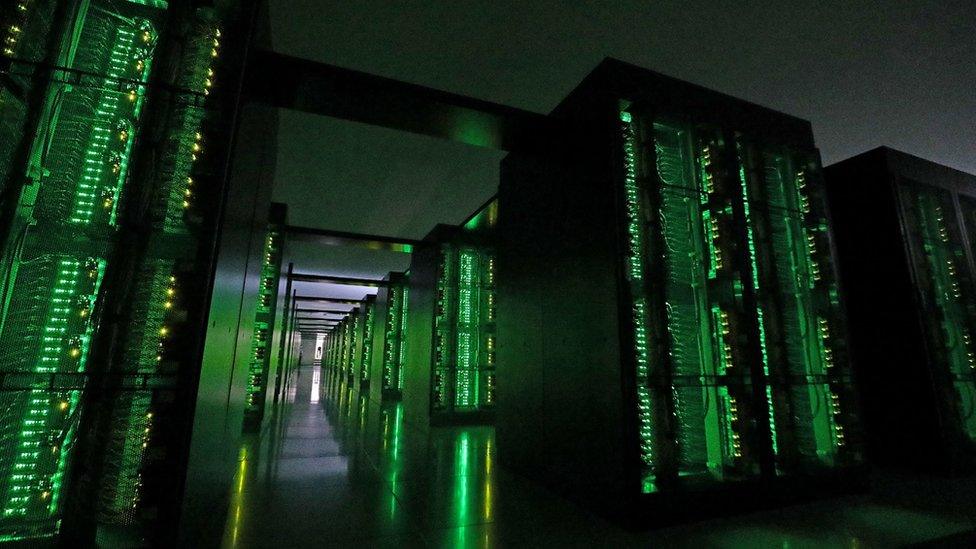Japanese supercomputer, crowned world's fastest, is fighting coronavirus
- Published

The Fugaku system is already analysing coronavirus droplet spread in offices and public transport
The newly crowned world's fastest supercomputer is being deployed in the fight against the coronavirus.
Japan's Fugaku supercomputer claimed the top spot on Monday, carrying out 2.8 times more calculations per second than an IBM machine in the US.
The US machine, called Summit, came top of the bi-annual Top500 list the previous four times.
Fugaku's victory broke a long run of US-China dominance, returning Japan to the top for the first time in 11 years.
Top500 ranks the world's most powerful non-distributed computer systems.
Fugaku has already been put to work on fighting the coronavirus, simulating how droplets would spread in office spaces with partitions installed or in packed trains with the windows open.
When it is fully operational next year, experts are hoping the machine will also be able to help narrow down the search for effective treatments for the virus.
The room-sized machine lives in the city of Kobe and was developed over six years by Japanese technology firm Fujitsu and the government-backed Riken Institute. Its name is another way of saying Mount Fuji.
Its performance was measured at 415.53 petaflops, 2.8 times faster than second-place Summit's 148.6 petaflops. The US machine is housed at the Oak Ridge National Laboratory in Tennessee. A supercomputer is classified by being more than 1,000 times faster than a regular computer.
"I hope that the leading-edge IT developed for it will contribute to major advances on difficult social challenges such as Covid-19," said Satoshi Matsuoka, the head of Riken's Center for Computational Science.
Third place in the list went to another IBM system, at Lawrence Livermore National Laboratory in California, while the fourth and fifth places were taken by computers in China.
Fugaku also topped other supercomputer performance rankings, becoming the first to simultaneously sit atop the Graph500, HPCG, and HPL-AI lists.
- Published24 June 2020

- Published5 July 2022
